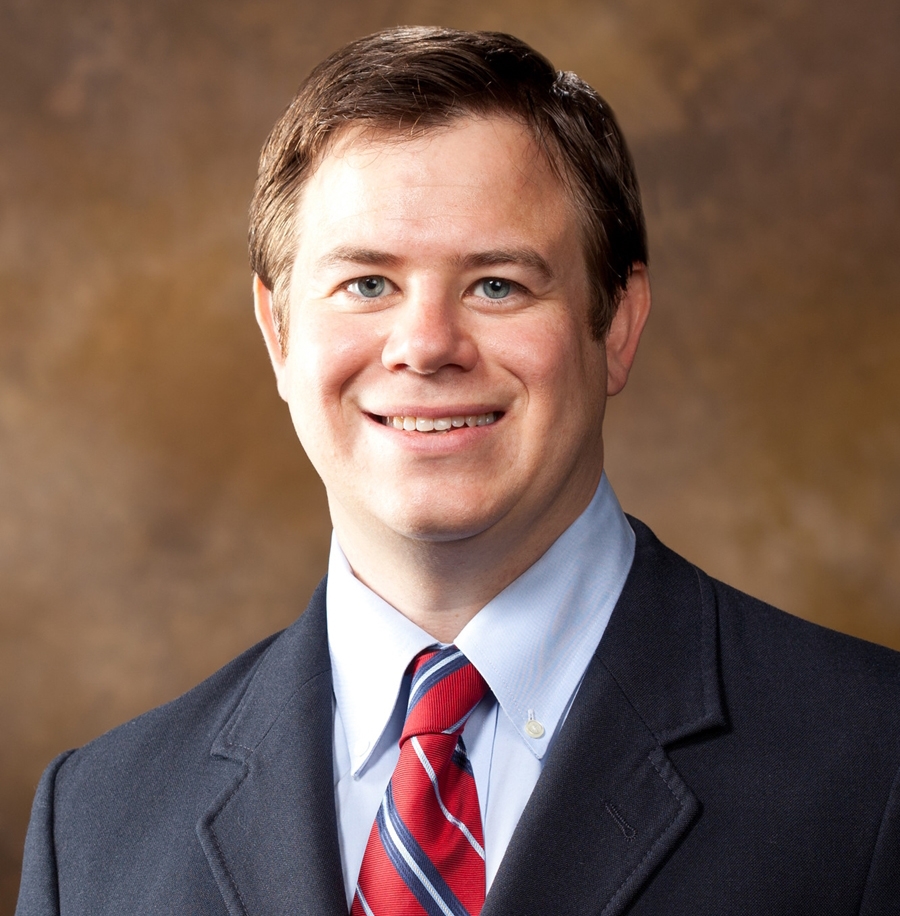FAYETTEVILLE, Ark. – Matching behavior with the way you feel – in other words, not faking it – is more productive at work and leads to other benefits, according to a new study co-authored by Chris Rosen, management professor in the Sam M. Walton College of Business at the University of Arkansas.
Rosen helped design and write a study led by Allison Gabriel, associate professor of management and organizations at the University of Arizona. They published their findings in the Journal of Applied Psychology.
“We found that people who put forth effort to display positive emotions towards others at work – versus faking their feelings – receive higher levels of support and trust from co-workers,” Rosen said. “These people also reported significantly higher levels of progress on work goals likely due to the support they received.”
From surveys of more than 2,500 working adults in a variety of industries, including education, manufacturing, engineering and financial services, the researchers analyzed two types of emotion regulation people use at work: surface acting and deep acting. Surface acting involves faking positive emotions when interacting with others in the work environment. One might be frustrated or angry on the inside, but the external appearance disguises those feelings. Deep acting involves trying to change how one feels internally. With deep acting, individuals try to feel more positively in order to be more pleasant when interacting with others.
The researchers wanted to know if people regulated their emotions when interacting with co-workers, and, if so, why they chose to do this if there were no formal rules requiring them to do so. And then, what benefits, if any, did they receive from this effort?
The researchers identified four types of people who regulate their emotions with co-workers. Nonactors engage in negligible levels of surface and deep acting, low actors display slightly higher surface and deep acting, deep actors exhibit the highest levels of deep acting and low levels of surface acting, and regulators display high levels of surface and deep acting.
Nonactors were the smallest group in each study, and the other three groups were similar in size.
Regulators were driven by “impression management,” which the researchers defined as strategic motives that include gaining access to resources or looking good in front of colleagues and supervisors. Deep actors were much more likely to be motivated by “prosocial” concerns, meaning they chose to regulate their emotions with co-workers to foster positive work relationships and be courteous.
Regulators – those who mixed high levels of surface and deep acting – experienced emotional exhaustion and fatigue, the researchers found, whereas deep actors – those who relied largely on deep acting – had improved well-being.
Additional co-authors were Joel Koopman, assistant professor of management at Texas A&M University; John Arnold, doctoral student at Florida State University; and Wayne Hochwarter, professor of management at Florida State University.
Rosen holds the John H. Tyson Chair in Business Management.
About the University of Arkansas: The University of Arkansas provides an internationally competitive education for undergraduate and graduate students in more than 200 academic programs. The university contributes new knowledge, economic development, basic and applied research, and creative activity while also providing service to academic and professional disciplines. The Carnegie Foundation classifies the University of Arkansas among fewer than 2.7 percent of universities in America that have the highest level of research activity. U.S. News & World Report ranks the University of Arkansas among its top American public research universities. Founded in 1871, the University of Arkansas comprises 10 colleges and schools and maintains a low student-to-faculty ratio that promotes personal attention and close mentoring.
Topics
Contacts
Chris Rosen, professor, management
Sam M. Walton College of Business
479-575-4059, crosen@walton.uark.edu
Matt McGowan, science and research communications officer
University Relations
479-575-4246,
dmcgowa@uark.edu
